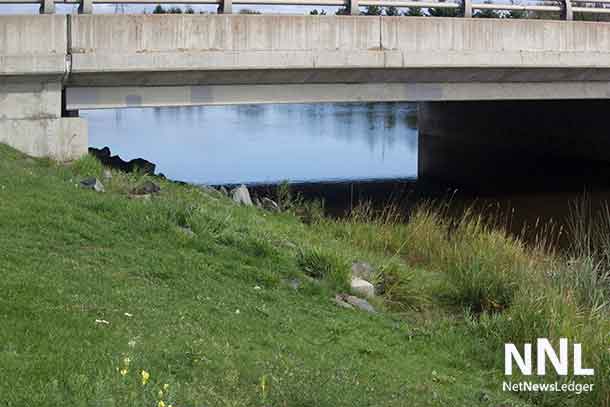THUNDER BAY – NEWS – There have been a number of deaths along rivers and creeks in Thunder Bay. Police officers were involved in 47 possible life-saving incidents in 2018 along local waterways identified as key areas by the ongoing Project Floodway.
The good news is that the overall numbers are down in 2018 from previous years. The 305 incidents in 2018 are down from the 451 recorded in the 2017 annual report.
Police officers were involved in 47 possible life-saving incidents in 2018 along local waterways identified as key areas by the ongoing Project Floodway.
The Thunder Bay Police Service on Tuesday released its 2018 Project Floodway annual report during the Thunder Bay Police Board meeting at city hall following a presentation by Community Services Branch Insp. Ryan Gibson.
The project was developed in response to Recommendation 115 of the Seven Student Inquest. The goal is that authorities can locate, assist and prevent vulnerable people from injury near waterways.
The initiatives to help achieve this goal include: Implementation of police patrols in key areas; collaboration with various agency partners; participation in a crime prevention through environmental design (CPTED) safety audit.
he Neebing/McIntyre Floodway was again the most frequently occupied in 2018 (69% of all incidents), followed by McVicar Creek (10%), the Lower Neebing River (9%), and the Kaministiqua River (5%). While not identified as a study area in the original Project Floodway proposal, TBPS responded to many incidents at Lake Superior/Marina Park (7%) in 2017 and 2018, so these numbers were also tracked.
For comparison, the most frequented areas in 2017 were Neebing/McIntyre Floodway (67%), McVicar Creek (20%), Lower Neebing River (6%), Lake Superior (4%), and Kaministiqua River (3%).
“We want people to be safe,” Insp. Gibson said of the individuals who officers interact with as a result of Project Floodway.
“I have to believe now with other social service agencies down there and aware of this, community supports in place, places for youth to go to, and police doing proactive patrols … that’s going to have an impact.”
- The project’s study areas – target locations – include:
- McVicar Creek, between Algoma Street North and Marina Park;
- Neebing/ McIntyre Floodway, between Home Depot in the Thunder Centre and Balmoral Street;
- Lower Neebing River, the walk bridges between Northern and Southern Avenue;
- The Kaministiqua River, between Dock Street and the James Whalen Tug Boat.
Police recorded 305 incidents, an average of 0.8 incidents per day, in those target areas for 2018. In addition to 47 possible life-saving interventions, 2018 saw eight documented water rescues highlighted by the report as being “definitely life-saving.”
Despite this drop, Insp. Gibson didn’t want to make any conclusions about the project’s effectiveness with only two years of data. However, he is more confident in concluding that increased attention to the issues has led to a constructive community-wide response.
“We’ve made some big steps in the last couple years as a community and I think there’s been a positive outcome.”
Insp. Gibson also speculated during his board presentation that a drop in calls could be the result of more public awareness combined with other social services agencies intervening when police presence isn’t necessarily appropriate.
The Project Floodway 2018 annual report is available to view, print or download online at the Thunder Bay Police Service’s website here.








